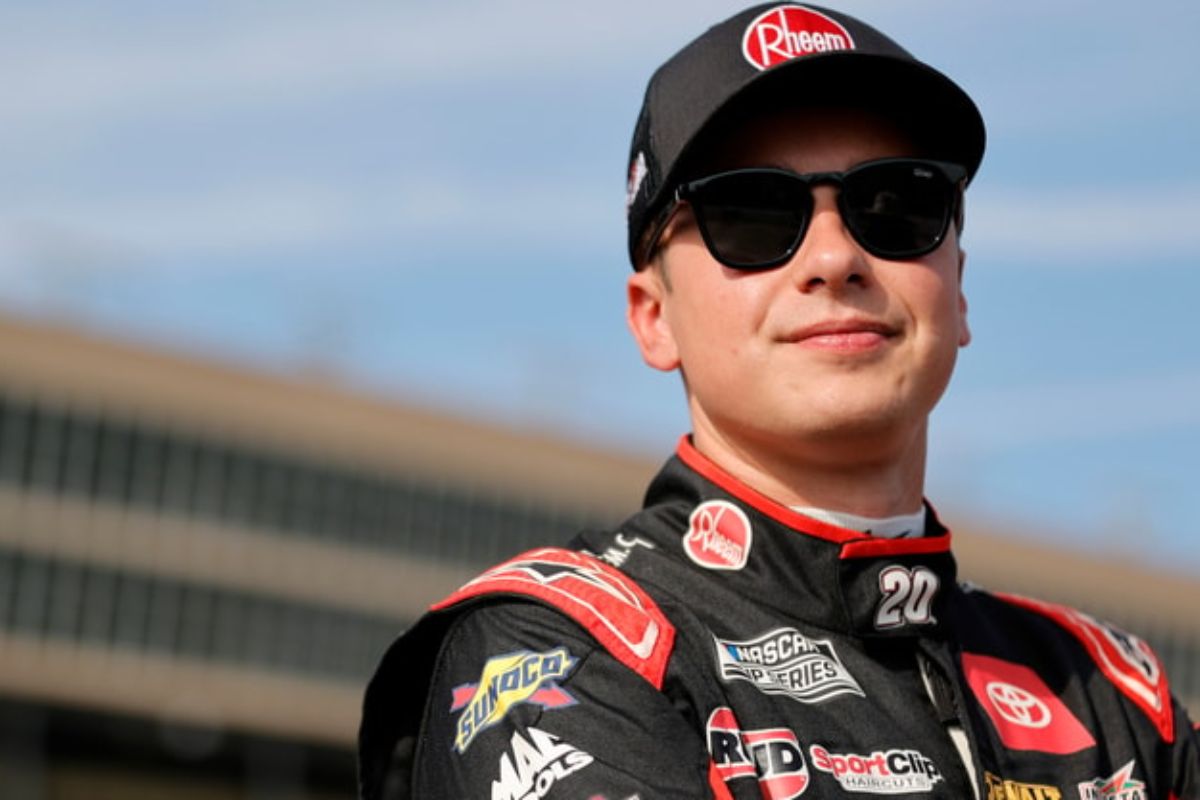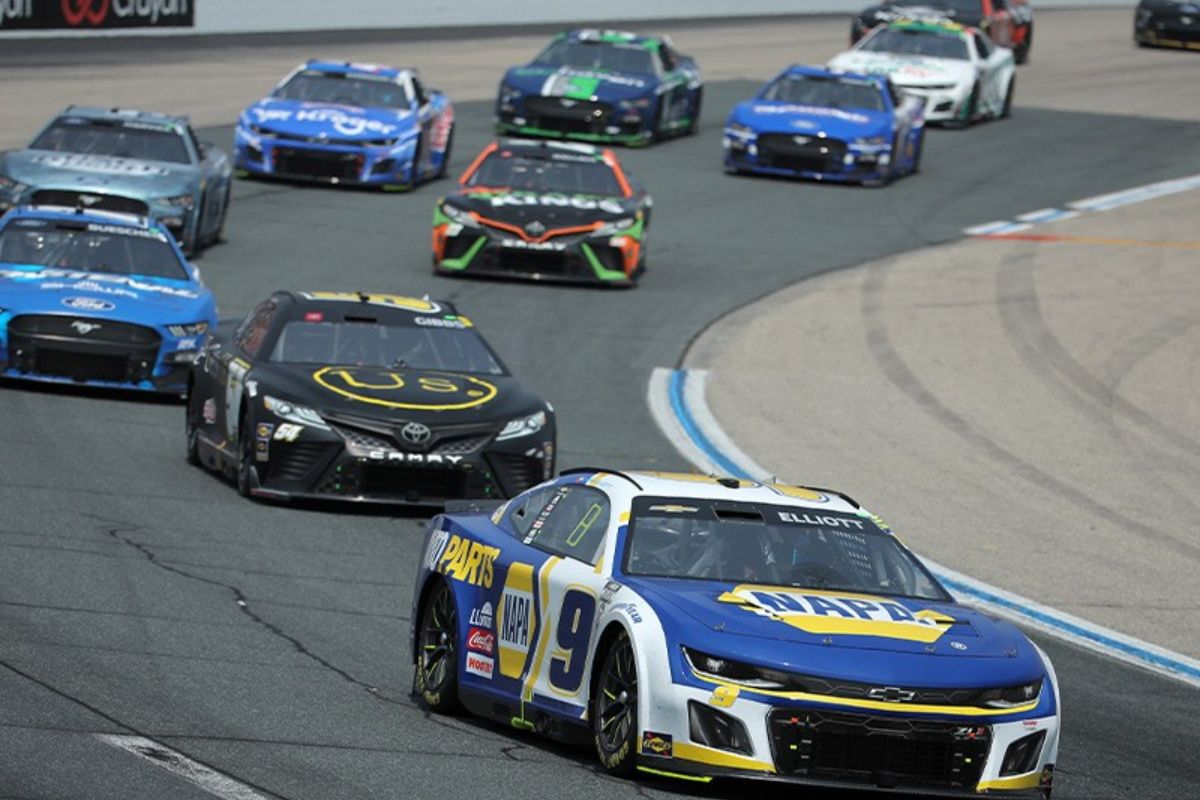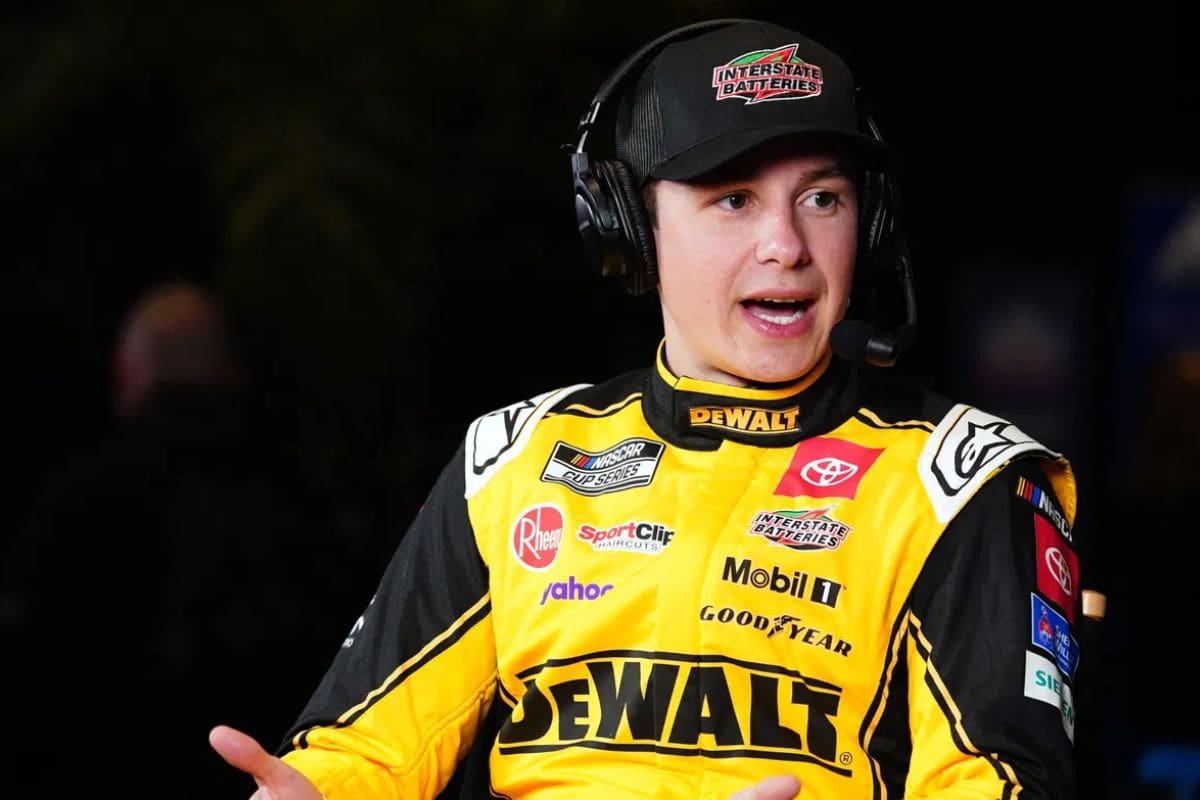Christopher Bell Blames Fellow Drivers: Christopher Bell‘s recent criticism regarding the overtime at Watkins Glen shows a growing concern within NASCAR about driver accountability and safety. By attributing the series of the reckless behavior of his peers, Bell raises sad questions about the integrity of competitive racing. His remarks suggest a potential need for stricter enforcement of driving standards, particularly in such scenarios. As the discussion unfolds, the implications of his viewpoint on future races and NASCAR’s regulatory framework merit closer examination.
Key Highlights
- Christopher Bell criticized fellow competitors for their reckless driving, which he believes led to the chaos during overtime at Watkins Glen.
- He emphasized that the numerous wrecks during the race raised concerns about driving standards and safety protocols in NASCAR.
- Bell expressed a desire for a more professional racing culture that prioritizes skill over aggressive behavior during key moments.
- The chaotic finish at Watkins Glen highlighted the need for NASCAR to enforce stricter driving standards to enhance race integrity.
- Bell’s frustrations reflect a growing sentiment among drivers regarding the impact of aggressive racing on competition quality and safety.
Overview and Bristol Tire Wear
As teams gear up for the upcoming race at Bristol, the conversation among drivers has shifted to the challenge of tire wear on the unique half-mile oval. Bristol’s distinctive layout, characterized by its steep banking and tight corners, places immense strain on tires, leading to rapid degradation. This phenomenon creates a vital tactical element that drivers must navigate to optimize their performance.
The high tire wear at Bristol necessitates a careful balance between aggression and conservation. Drivers must make tactical decisions regarding when to push their cars to the limit versus when to manage tire life, as the latter can be the difference between a top finish and a disappointing result.
Compounding this issue is the potential for varying weather conditions, which can further affect tire performance and necessitate real-time adjustments to race strategy.
Moreover, with the specter of multi-car incidents, as seen in the recent Watkins Glen race, tire management becomes even more essential. A well-executed plan can provide drivers with the competitive edge required to navigate both the physical and strategic challenges presented on race day.
Understanding the nuances of tire wear at Bristol is not merely a specialized concern but a thorough approach to racing that encompasses vehicle handling, pit strategies, and real-time decision-making.
Christopher Bell’s View on Chaotic Racing
Chaos in racing often sparks differing opinions among drivers, and Christopher Bell is no exception. Currently positioned third on the playoff charts, Bell is poised for a strong title run this season. Yet, his recent comments reveal a nuanced perspective on the chaotic nature of modern NASCAR racing, particularly in view of record-setting overtime finishes.
In an interview with Frontstretch.com, Bell expressed his discomfort with the frequent disruptions that have characterized recent races. While he acknowledges the excitement that can accompany a thrilling finish, he cautions against the “demo derby” style of racing that sometimes ensues.
“Going back to the finish of last week, and as you mentioned, this sets a record for the most overtime finishes in one NASCAR Cup season ever. Multiple overtimes. Do you feel like there needs to be some sort of change going forward?” – (interviewer asked )
“I don’t like watching the races end under a yellow flag,” he stated, indicating a preference for a more authentic competition. His sentiment emphasizes a broader concern within the sport about the integrity of race outcomes.
“I don’t know what the answer is because, personally, as a race fan, I don’t like watching the races end under a yellow flag. But I also don’t like the demo derby that we have at times as well.” -(bell)
Bell’s neutrality in the discussion is remarkable; he recognizes that the rules governing race finishes are not within his control. His willingness to “play by the rules” demonstrates professionalism, but it also highlights the conflict between personal enjoyment and the realities of current racing dynamics.
“So, that’s not really my call, and I’ll play by the rules, but I definitely don’t like seeing races end under yellow.”-(bell)
As he prepares for upcoming races, Bell’s perspective serves as a reminder of the need for a balance in the sport—one that preserves the thrill of racing while minimizing the chaos that detracts from competitive integrity. Ultimately, Bell’s insights reflect a driver’s desire for clarity and fairness in a landscape increasingly defined by unpredictability.
NASCAR Policing and Bell’s Suggestions
NASCAR’s current approach to policing racing conduct has sparked considerable debate among drivers, with Christopher Bell emerging as a prominent voice advocating for change. Bell argues that the prevailing system—where drivers largely police themselves—has led to a breakdown in racing standards, in chaotic situations such as those witnessed during recent overtime laps. His stance reflects a growing sentiment within the NASCAR community that the existing framework is inadequate for maintaining order and safety on the track.
“Would it be worth it if NASCAR maybe stepped in and did a judgment call here and there? Or would that be better than what we have now? Or do you want drivers policing themselves, and do you want NASCAR to stay out of it?”-(INTERVIWER asked)
“Yeah, I mean, well, drivers policing themselves is certainly what has got us to the point we’re at today.”-(BELL)
Bell contends that NASCAR should take a more active role in enforcing driving standards. He suggests that the implementation of single-file restarts, particularly on road courses, could greatly reduce the likelihood of collisions and improve race integrity. While he recognizes that such proposals may not align with NASCAR’s current priorities, his perspective highlights the need for a reevaluation of the governing body’s strategies.
The crux of Bell’s argument lies in the belief that a more structured approach to officiating could mitigate the “carnage” that often arises in high scenarios. By advocating for NASCAR intervention, he highlights a critical debate: should the onus of accountability rest solely on the drivers, or should the governing body enact measures to guarantee a safer, more disciplined racing environment?
“I think single-file restarts would help tremendously, especially on road courses.”
“So, you know, I don’t think any of those ideas are high on NASCAR’s priority list, but I do think either officiating driving standards or single-file restarts would really help mitigate the carnage we have.”
As the conversation surrounding NASCAR policing continues, Bell’s insights may pave the way for a groundbreaking shift in how racing conduct is managed, fostering a more competitive yet respectful atmosphere on the track.
Watkins Glen Chaos and Bell’s Hopes
Witnessing the tumultuous events at Watkins Glen, where wrecks plagued the race from start to finish, has emphasized the precarious nature of racing. The chaos not only captivated spectators but also highlighted the inherent risks faced by drivers. Each lap seemed to unfold with dramatic incidents that transformed the race into a relentless battle for survival, raising critical questions about the balance between competitive spirit and safety.
Christopher Bell, amidst the wreckage, expressed concerns about the excessive aggression displayed by fellow drivers, which he believes detracts from the integrity of the competition. As he navigates the treacherous waters of the Cup Series, Bell’s aspirations hinge on a more predictable racing environment, one where talent and strategy can shine without the constant shadow of avoidable crashes.
He hopes that as the season progresses, the frequency of such incidents will diminish, allowing for a more equitable fight for the championship. Bell’s candid reflections resonate with many drivers who share his desire for a racing culture that prioritizes skill over recklessness. Achieving this equilibrium is critical not only for the safety of the competitors but also for the future of the sport.
The events at Watkins Glen serve as a reminder that while drama fuels fan engagement, the true nature of racing lies in the art of competition—a pure contest of speed, strategy, and skill. For Bell, a steadying of the chaotic environment is paramount as he seeks to enhance his standing in the championship battle.
Christopher Bell’s 2024 Performance
As the 2024 season unfolds, Christopher Bell‘s performance stands out, marked by three notable victories and a series of strong finishes that underscore his competitiveness in the Cup Series. His triumphs at Phoenix, Charlotte, and New Hampshire not only reflect his skill but also establish him as a formidable contender, successfully securing his place in the playoffs.
Bell’s consistency has been a hallmark of his season; he has achieved ten top-five finishes, and when avoiding catastrophic results, he has consistently placed within the top ten. This reliability is vital in a sport where every point counts, particularly as he seeks to capture the elusive championship title that has narrowly slipped from his grasp in previous years.
Despite setbacks in the last two seasons, including a heartbreaking brake rotor failure during the 2023 championship race at Phoenix, Bell’s resilience shines through. His ability to rebound from adversity speaks volumes about his character and competitiveness.
Currently positioned just behind Joey Logano in the playoff standings, Bell’s performances indicate he is not merely a participant but a serious threat to clinch the championship. His analytical approach to racing and tactical execution have set the stage for a potential title run.
As the playoffs approach, Bell’s path suggests he is not only chasing a championship; he is poised to seize it, provided he maintains his current form and navigates the challenges ahead with the precision he has illustrated throughout the season.
News in Brief: Christopher Bell Blames Fellow Drivers
Christopher Bell’s criticisms regarding the chaotic overtime at Watkins Glen, it becomes evident that reckless driving behaviors pose considerable risks to both safety and the integrity of NASCAR racing. The call for stricter enforcement of driving standards is vital to maintain a competitive environment grounded in skill rather than disorder. As the 2024 season approaches, addressing these concerns may be imperative for fostering a safer and more equitable racing landscape that prioritizes both competition and accountability.
ALSO READ: Christopher Bell on Aggressive Cup Drivers’ Strategies: Are They Testing NASCAR’s Patience?



